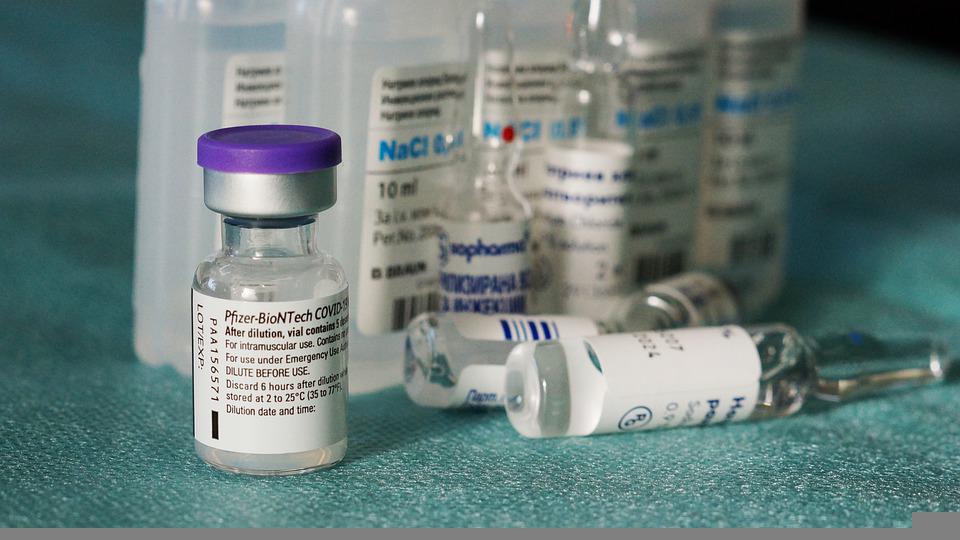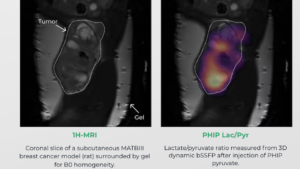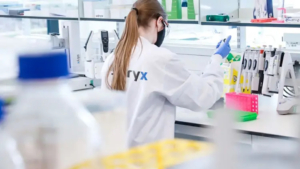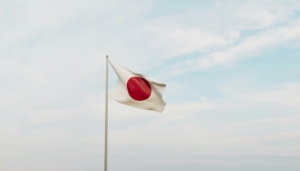
Moderna launches patent dispute with BioNTech/Pfizer
For the second time within a short period of time, a competitor has sued the mRNA vaccine developer BioNtechPfizer for patent infringement.
The lawsuit, filed in Boston and Düsseldorf by Moderna’s general counsel Shannon Thyme Klinger and now disclosed by the U.S. company, follows a similar lawsuit filed by German corona mRNA vaccine developer Curevac N.V. In the complaint, the U.S. company is seeking compensation payments from the dominant suppliers BioNTech/Pfizer of the mRNA corona vaccine Comirnaty and its Omikron-adapted successor, which is in registration trials. According to Moderna, the latter uses the same modification to stabilize its mRNA vaccine, thus infringing the company’s intellectual property rights. BioNTech and marketing partner Pfizer vehemently rejected this claim, similar to the earlier lawsuit filed by Curevac.
Both plaintiffs emphasized that they did not want to take action against the marketing of BioNTech/Pfizer’s successful vaccines. In contrast to Curevac, whose vaccine candidate failed miserably in clinical trials, Moderna is successfully marketing its own COVID-19 vaccine, but is in litigation with various lipid nanoparticle manufacturers such as Arbutus Inc. who also want a piece of the billions in sales already achieved with the mRNA vaccine.
Patent experts confidentially told European-Biotechnology.com that the lawsuits against BioNTech are homegrown, as BioNTech’s patent portfolio is very narrowly focused on its proprietary mRNA technology. It is common practice in patent strategy to formulate claims too broadly so that the property rights of competitors can automatically be attacked, and therefore there is sufficient threat potential to render the competitor incapable of acting in the event of a patent lawsuit.
The lawsuit sheds light on the economic and medical importance of patenting life-saving innovations such as mRNA vaccine technologies. The World Trade Organization (WTO) had agreed to exceptions to patent protection (TRIPS waivers) for corona vaccines this year, which it plans to extend to COVID-19 diagnostics,therapeutics, and other pandemic-limiting technologies by the end of the year. The argument for the patent waiver is that vaccine production is not sufficient to supply poorer countries and that they need to be enabled to produce, for example, mRNA vaccine themselves, which usually incurs royalties. The waiver, on the other hand, ignores the fact that the resources needed to produce mRNA vaccine are sold out for months to come, as manufacturers have hoarded the material to produce enough doses of vaccine, and that the governments of wealthy G20 countries have themselves sabotaged equitable vaccine distribution by placing bulk orders.
Companies and biotechnology industry associations such as the U.S.-based BIO have warned that the TRIPS waiver would generally weaken patent protection, threatening investment and, fundamentally, the return-on-investment that is a prerequisite for developing innovative vaccines, therapeutics, diagnostics, and so on. For this reason, all developers of Corona vaccines had already declared before the WTO initiative that they would make continents of their pandemic vaccines available free of charge or at cost price to the poorest countries in the world.
The development and clinical testing of vaccines and therapeutics typically takes an average of 15 years and high investments that innovative companies cannot handle alone. Patent law grants developers market exclusivity and protection from pirates, which provides an incentive for medical innovation.


 Courtesy Luca Nagel, Department of Nuclear Medicine, Klinikum rechts der Isar, School of Medicine, Technical University of Munich, Munich, Germany
Courtesy Luca Nagel, Department of Nuclear Medicine, Klinikum rechts der Isar, School of Medicine, Technical University of Munich, Munich, Germany Sitryx Therapeutics
Sitryx Therapeutics